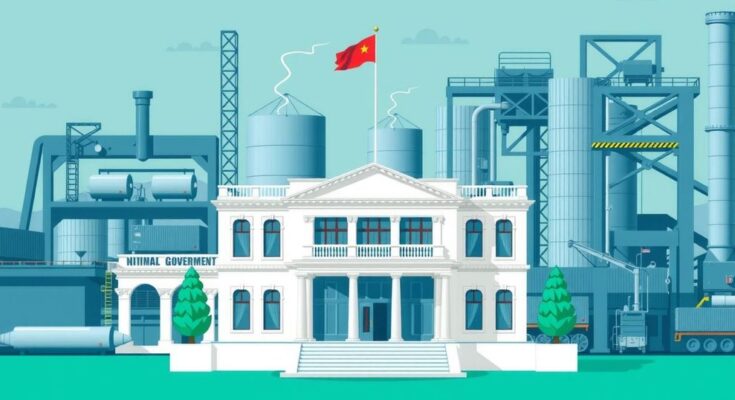Union Minister Jitin Prasada outlines India’s tariff policy aimed at protecting local industries and managing trade, especially amid threats from U.S. tariffs. The government is pursuing comprehensive tariff reforms to support economic growth and competitiveness while navigating WTO regulations and moving towards preferential trade agreements.
Union Minister Jitin Prasada recently addressed the Lok Sabha, emphasizing that India’s tariff policy is designed to manage trade, protect domestic industries, and generate revenue through taxation on imports and exports. His remarks were made in light of impending tariffs proposed by U.S. President Donald Trump, highlighting the government’s proactive stance regarding international trade challenges.
During the Question Hour, Minister Prasada affirmed that the government is cognizant of NITI Aayog’s recent commentary relating to tariffs and their ramifications for India’s economic development. He underscored that India’s tariff strategy aligns with the nation’s overarching goal of fostering economic growth and enhancing its appeal within the global market.
Prasada reiterated India’s compliance with World Trade Organization (WTO) regulations, stating that the maximum tariffs imposed are typically below the bound rates for specified commodities. This structure reflects India’s commitment to fair trade practices while safeguarding local industries.
In response to the evolving trade landscape, India is progressing towards preferential trade agreements (PTAs) that aim to reduce or eliminate customs tariffs and non-tariff barriers among member countries. Such reforms are integral in establishing a favorable trading environment.
The government has initiated extensive tariff reforms aimed at rectifying inverted duty structures, with the objective of lowering production costs and encouraging domestic manufacturing. However, Minister Prasada noted that some domestic sectors continue to request elevated tariffs to mitigate foreign competition. Recent tariff adjustments have notably benefited local manufacturing, particularly in the electronics and electric vehicle sectors.
As of March 2025, India eliminated import duties on 35 essential items for electric vehicle battery production and 28 items pertinent to mobile phone manufacturing. This strategic reduction is intended to strengthen local production capabilities and enhance export competitiveness across these critical industries, alongside an anticipated influx of investment in significant minerals.
In summary, Union Minister Jitin Prasada’s statements signify the Indian government’s commitment to balancing tariff policy with the protection of local industries amidst international trade pressures. The ongoing reforms aim to reduce production costs and boost competitiveness, demonstrating India’s strategic alignment with global trade practices while enhancing domestic manufacturing and growth.
Original Source: www.business-standard.com




